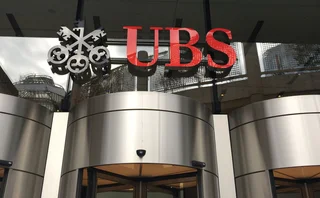
Drop margin on swaps leaving Libor, Basel says
Joined by Iosco, Basel says moves to Libor successors should not be saddled with margin requirements

Legacy Libor contracts being transitioned to new benchmarks should not have to meet margin requirements, two international regulatory standards bodies said on March 5.
The Basel Committee on Banking Supervision and the International Organization of Securities Commissions (BCBS-Iosco) released a joint notice detailing their recommendations, which go against rules set in the aftermath of the 2008 financial crisis.
The two said any changes made to legacy derivative contracts “solely for the purpose of addressing interest rate benchmark reforms” should not be required to adhere to the margin requirements for non-cleared swaps – though they conceded that local lawmakers across global jurisdictions must make their own determinations.
The news was welcomed by industry participants.
“The statement is a positive step and we think there will be more like it in the months to come,” says Brian Grabenstein, managing director and head of Libor transition at Wells Fargo.
A derivatives head at a buy-side firm concurred: “This is a step in the right direction and I certainly hope the US prudential regulators will follow in the BCBS-Iosco footsteps.”
In the US, it will be up to the Federal Reserve, the Federal Deposit Insurance Corporation and the Office of the Comptroller of the Currency to make any final rule change. The Fed declined to comment on the BCBS-Iosco notice.
If such a change were made, it would cover any legacy swap transactions from before mandatory central clearing was implemented by the Commodity Futures Trading Commission in 2012, as well as any interest rate derivatives that fall outside the clearing scope altogether, such as swaptions and cross-currency swaps.
Margin rules for non-cleared swaps, which require two counterparties engaged in certain non-cleared derivative transactions to exchange initial margin, began a five-year phased implementation in 2016.
Institutions with more than $3 trillion in non-cleared swaps notional were caught in the net first, mainly the world’s largest banks. This September will usher in phase four of the rule and cover firms with more than $750 billion in non-cleared swaps notional.
Margin for non-cleared trades is higher than for cleared trades and is a costly and operationally burdensome process that participants would rather avoid. On Libor contracts, it is one element that acts as a disincentive to leaving the expiring rate. Banks will no longer be required to give Libor quotes after 2021.
For example, non-deliverable forwards (NDFs) – a type of foreign exchange contract that has typically not cleared – became more expensive to trade once the margin rules came into effect in 2016, which propelled a surge in cleared volume at clearing house LCH.Clearnet as banks tried to reduce the costs of trading those contracts. The margin cost also boosted the amount of inflation swaps that became cleared.
Getting exemptions from financial crisis rulemaking has been a key tenet of some jurisdictions’ plans to ease the transition burden away from Libor.
For example, the Alternative Reference Rates Committee (ARRC), a group convened by the Federal Reserve Bank of New York, sent a letter last year to US regulators requesting clarification on swap trades’ treatment under Dodd-Frank Title VII if they were amended to include a new fallback provision, or in order to switch to an alternative benchmark.
One such request was that “non-cleared swap margin rules do not apply to legacy derivatives contracts”. A spokesperson for the ARRC was unavailable for comment.
Wells Fargo’s Grabenstein says regulators “have fully endorsed alternative reference rates and have committed to removing unnecessary obstacles to their implementation”.
“The formation of the interest rate benchmark reform subcommittee under the CFTC’s market risk advisory committee as well as the recent IFRS [International Financial Reporting Standards] decision to provide hedge accounting relief are other important examples,” he says.
Only users who have a paid subscription or are part of a corporate subscription are able to print or copy content.
To access these options, along with all other subscription benefits, please contact info@risk.net or view our subscription options here: http://subscriptions.risk.net/subscribe
You are currently unable to print this content. Please contact info@risk.net to find out more.
You are currently unable to copy this content. Please contact info@risk.net to find out more.
Copyright Infopro Digital Limited. All rights reserved.
As outlined in our terms and conditions, https://www.infopro-digital.com/terms-and-conditions/subscriptions/ (point 2.4), printing is limited to a single copy.
If you would like to purchase additional rights please email info@risk.net
Copyright Infopro Digital Limited. All rights reserved.
You may share this content using our article tools. As outlined in our terms and conditions, https://www.infopro-digital.com/terms-and-conditions/subscriptions/ (clause 2.4), an Authorised User may only make one copy of the materials for their own personal use. You must also comply with the restrictions in clause 2.5.
If you would like to purchase additional rights please email info@risk.net
More on Markets
Isda to finalise drafting updated FX definitions this year
New definitions on disruption events and fallbacks are core focus
Treasury clearing timeline ‘too aggressive’ says BofA rates head
Sifma gears up for extension talks with incoming SEC and Treasury officials
SG looks beyond equity derivatives in new markets push
French bank aims to expand fixed income business to achieve “more stable” revenues across asset mix
Does no-hedge strategy stack up for mag seven mavericks?
At Amazon, Meta and Tesla, the lack of FX hedging might raise eyebrows, but isn’t necessarily a losing technique
HKMA’s renminbi repo plans boost hopes for onshore access
Market participants optimistic that new provisions for offshore repos of onshore bonds is first step towards mainland access
Euro swap spread volatility challenges Bund’s hedging role
German Bunds face scrutiny as euro swap spreads turn negative, forcing traders to rethink hedging strategies
UBS sterling rates head departs
Ian Hale left the Swiss bank in December
Bloomberg offers auto-RFQ chat feed – but banks want a bigger prize
Traders hope for unfettered access to IB chat so they can build their own AI-enhanced trading tools







